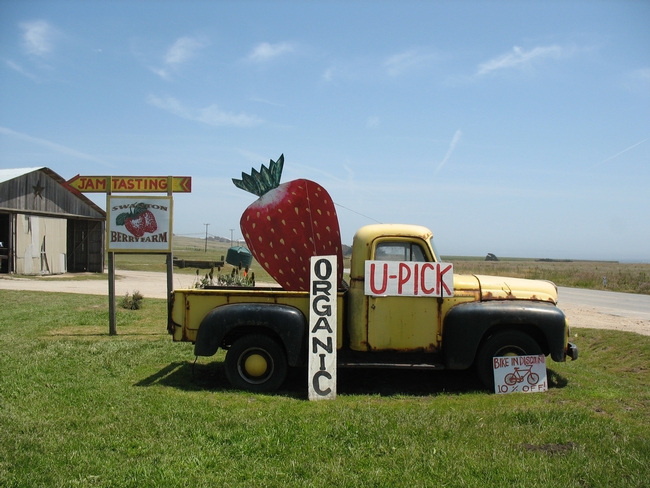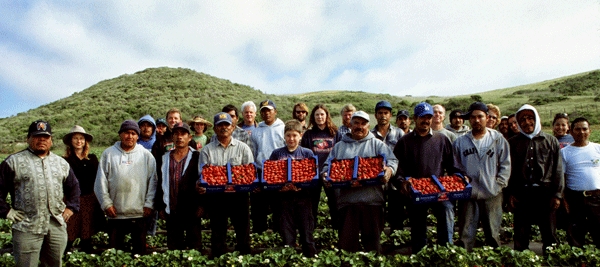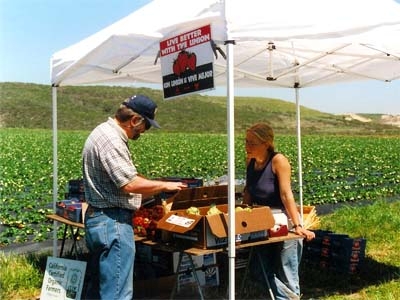U-pick organic strawberry season opens on coast
The U-pick strawberry fields at Swanton Berry Farm near Davenport on the coast are formally opening on May 28, but if you drive out there now, you’ll get a chance to pick without a crowd. Talking to Barrett Boaen, the U-pick manager, I got to the bottom of just why their berries, also sold at local Whole Foods stores, look and taste so good.
Partly it’s the ‘Chandler’ variety, chosen for its old-fashioned sweetness and flavor although it yields only about two-thirds as well as some varieties. It’s also about not pumping up production with too much nitrogen or irrigation (more details here). Mostly, though, it’s about the picking process. A strawberry grower visiting from the East Coast recently bought two flats from the farmstand, saying he couldn’t help himself, he had never laid eyes on such beautiful organic berries, and he knew who to congratulate—the pickers.
You and I are unlikely to come close to picking as well as Swanton’s unionized employees, some of whom have more than 20 years of experience at the farm. They recognize when a strawberry is as ripe as it can be, when it’s red and sweet all the way through (strawberries don’t continue ripening once they are picked). Although a less ripe berry is firmer, with a longer shelf-life and easier to transport, it has less flavor, so the pickers wait a day or two for any berry with a green tip or white shoulders to ripen perfectly. They discard berries that are soft on one side (from raindrops settling on the fruit) or have a cat-face look, which is lygus bug damage.
Moving along the rows, which are banked up to 18 inches high to reduce back strain, they harvest each perfectly ripe berry, with its green calyx attached, in a “twist and flick” motion: “you put tension on the stem above the calyx, and rotate it, so you can see 360 degrees and whether there’s any damage to the berry; then with just the right tension, the berry will pop off naturally,” explains Boaen.
In the U-pick fields, which have ocean views, visitors pick for pleasure, hopping from row to row, enjoying the fresh air, and the fragrance of the berries and the earth. Compared to the serious work in the other 20 acres of strawberries, “the 3 acres of U-pick are a playground,” says Boaen, “We provide people everything they need to be happy.”
“It can be demoralizing,” Boaen admits. “All that energy put into the fruit after the excellent warm January was wrecked.”
Fortunately, the farm has several other crops, and the strawberry fields are filling with new berries. You can pick them this summer for $2.50 per pound (10 percent discount for bicyclists). Bring your own containers if you remember, a windproof jacket and boots in case of fog or mud, and most of all, Boaen recommends allowing plenty of time to enjoy yourself.
By mid-June, Swanton ollalieberries will be ripe, and by mid- or late July, the blackberries will be ready. Farm tours are available by reservation. Organic strawberry and ollalieberry jams, and five other kinds, are available at the farmstand or online.

Swanton's farmstand



